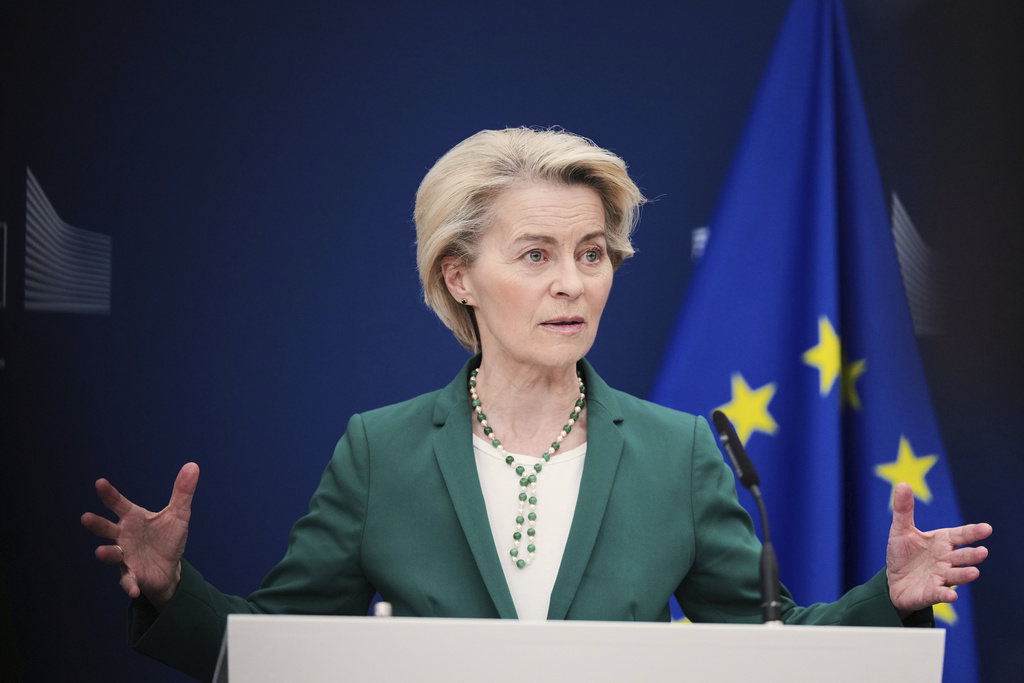The European Union’s executive commission said Thursday it will put trade retaliation measures on hold for 90 days to match President Donald Trump’s pause on his sweeping new tariffs and leave room for a negotiated solution.
European Commission President Ursula von der Leyen said that the commission, which handles trade for the bloc’s 27 member countries, “took note of the announcement by President Trump.”
New tariffs on 20.9 billion euros ($23 billion) of US goods will be put on hold for 90 days because “we want to give negotiations a chance,” she said in a statement.
But she warned: “If negotiations are not satisfactory, our countermeasures will kick in.”
Trump imposed a 20% levy on goods from the EU as part of his onslaught of tariffs of 10% and upward against global trading partners but said Wednesday he will pause them for 90 days to give countries a chance to negotiate solutions to U.S. trade concerns.
Countries subject to the pause will face Trump’s 10% baseline tariff.
Before Trump’s announcement, EU member countries voted to approve a set of retaliatory tariffs on $23 billion in goods in response to his 25% tariffs on imported steel and aluminum that took effect in March. The EU, the largest trading partner of the U.S., described them as “unjustified and damaging.”
The EU tariffs were set to go into effect in stages, some on April 15 and others on May 15 and Dec. 1. The EU commission didn’t immediately provide a list of the goods.
Members of the EU — the world’s largest trading bloc — have said they prefer a negotiated deal to resolve a trade war that damages the economies on both sides. The bloc’s top trade official has shuttled between Brussels and Washington for weeks trying to head off a conflict. The EU has offered Trump a “zero for zero” deal in which both sides would eliminate tariffs on industrial goods including autos. Trump has said that’s not enough to answer U.S. concerns and raised the possibility of Europe buying large additional amounts of U.S. liquefied natural gas.
The targeted goods are a tiny fraction of the 1.6 trillion euros ($1.8 trillion) in U.S.-EU annual trade. Some 4.4 billion euros in goods and services crosses the Atlantic each day in what the European Commission calls “the most important commercial relationship in the world.”
The EU has targeted smaller lists of goods in hopes of exerting political pressure and avoiding economic damage from a wider escalation of tit-for-tat tariffs.
The EU is also working on a further set of countermeasures in response to Trump’s blanket 20% tariff on all European goods, now suspended. That could include measures aimed at U.S. tech companies and the services sector as well as trade in goods.
Still, von der Leyen said that Europe intends to diversify its trade partnerships.
She said that the EU will continue “engaging with countries that account for 87% of global trade and share our commitment to a free and open exchange of goods, services, and ideas,” and to lift barriers to commerce inside its own single market.
“Together, Europeans will emerge stronger from this crisis,” von der Leyen said.
(AP)











